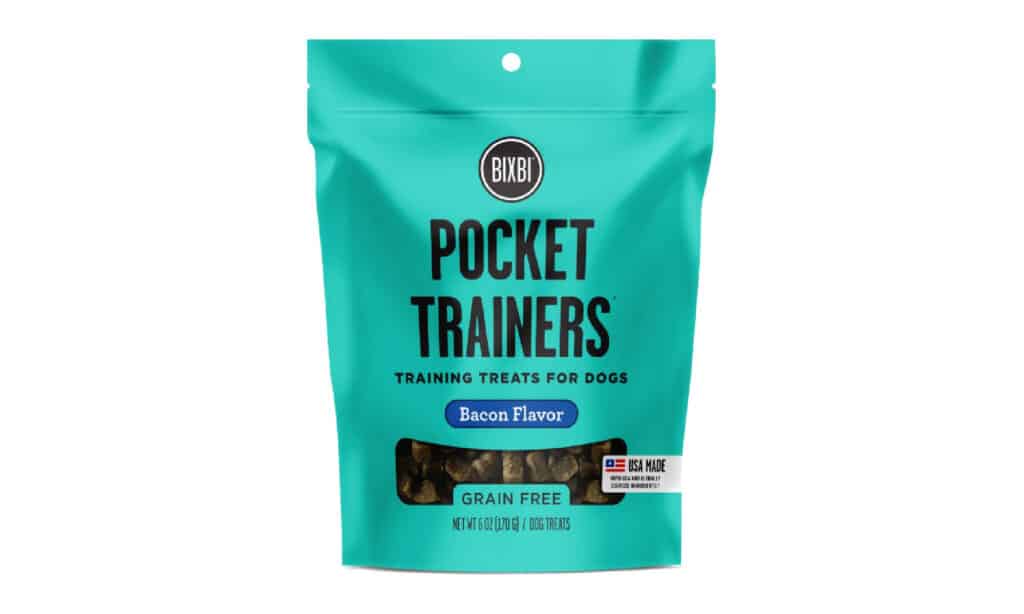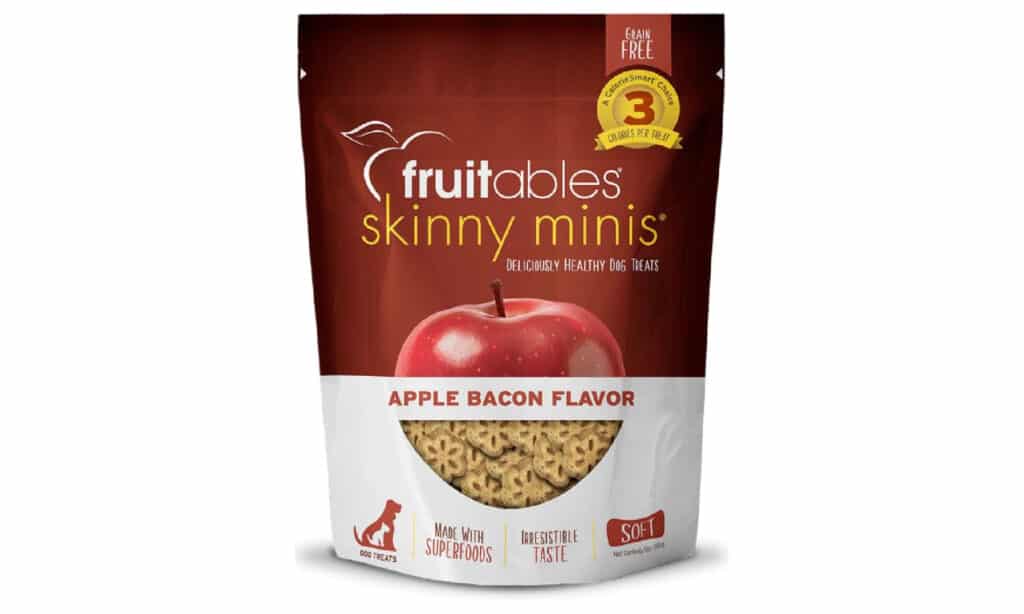If you’re a dog owner, you’re probably familiar with the pleading eyes and hopeful wagging tail that come with every mealtime. And let’s be honest, it’s hard to resist giving in to those adorable requests for a bite of whatever we’re eating. But when it comes to pizza rolls, you may be wondering if they’re safe for your furry friend to indulge in. After all, dogs have different nutritional needs and digestive systems than humans, and what’s safe for us may not be safe for them. So, can dogs eat pizza rolls? In this blog, we’ll explore the potential risks and benefits of feeding pizza rolls to your dog, and give you all the information you need to make an informed decision about what to feed your canine companion.
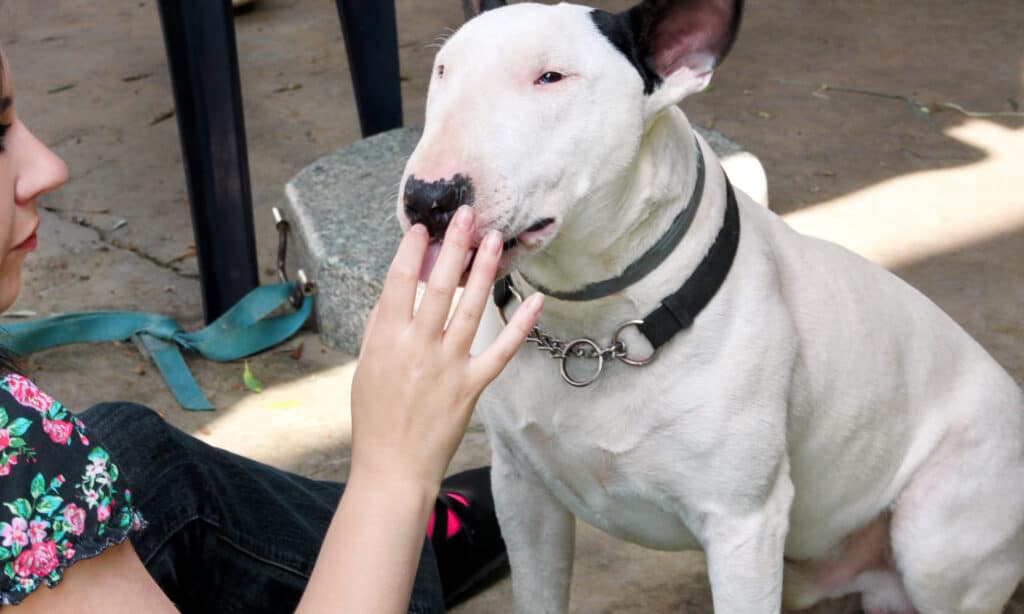
What Are Pizza Rolls?
Pizza rolls are a popular snack food that are often enjoyed as a quick and easy meal or snack. They are typically made by wrapping pizza ingredients such as cheese, sauce, and toppings inside a small, breaded and baked or fried dough shell. Pizza rolls are often sold frozen and can be heated up in the oven, microwave, or deep fryer for a crispy, convenient snack.
While pizza rolls can be a tasty treat for humans, it’s important to keep in mind that they may not be suitable for our four-legged friends. Dogs have different nutritional needs and digestive systems than humans, and certain ingredients commonly found in pizza rolls could potentially be harmful to their health. In the next sections, we’ll explore the potential risks and benefits of feeding pizza rolls to dogs, so you can make an informed decision about what to feed your furry friend.
Can Dogs Eat Pizza Rolls?
When it comes to feeding pizza rolls to dogs, the short answer is that it’s best to avoid it if possible. While some ingredients in pizza rolls may not be harmful in small quantities, there are several reasons why they are not an ideal food for our canine companions.
One of the main concerns is the high fat and calorie content of pizza rolls, which can lead to weight gain and obesity in dogs. Pizza rolls contain processed meats, like pepperoni or sausage, which are high in sodium and preservatives harmful to dogs.
Another potential issue with feeding pizza rolls to dogs is the risk of gastrointestinal upset. Dogs have sensitive digestive systems and consuming foods that are high in fat, salt, or spices can lead to vomiting, diarrhea, or other digestive issues.
Finally, some ingredients commonly found in pizza rolls, such as garlic or onion powder, can be toxic to dogs if consumed in large quantities.
While it may be tempting to share your pizza rolls with your furry friend, it’s best to stick to dog-friendly snacks and treats that are specifically formulated for their nutritional needs. Consult your vet if unsure about your dog’s food safety to make the best choices for their wellbeing.
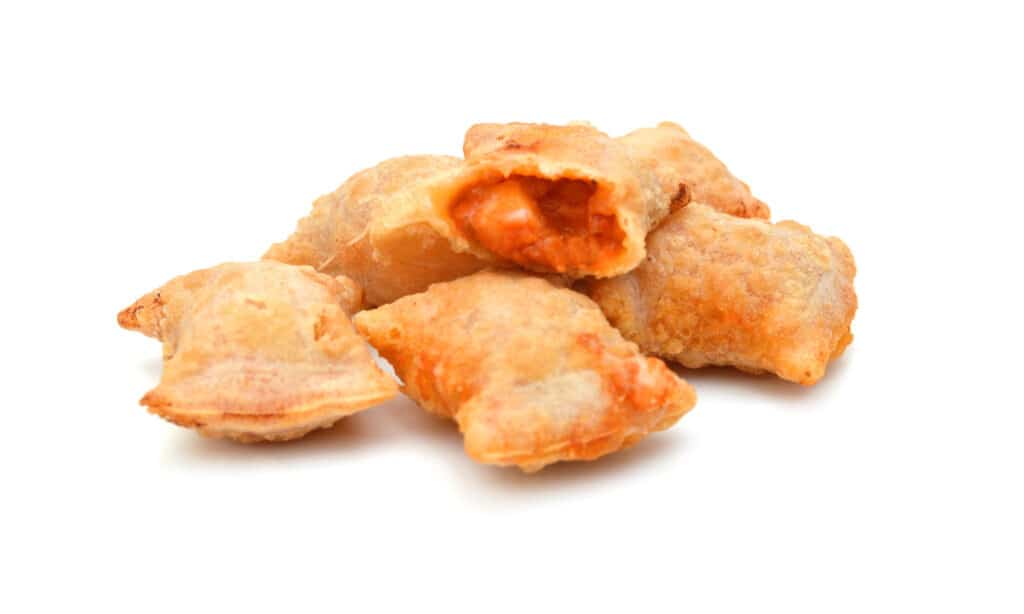
Harmful Ingredients in Pizza Rolls:
Pizza rolls may be a delicious and convenient snack for humans, but they can contain several ingredients that are potentially harmful to dogs. Some of the most concerning ingredients in pizza rolls include:
- Garlic and Onion Powder: Pizza roll ingredients can cause anemia in dogs if eaten excessively.
- Cheese: Cheese-filled pizza rolls may cause GI upset in dogs despite cheese being generally safe for them.
- Processed Meats: Avoid giving pizza rolls with processed meats to dogs, as they may contain harmful preservatives and high sodium.
- Dough: Pizza rolls’ dough high in calories & carbs can cause weight gain & health issues in dogs.
- Spices: Pizza rolls’ spices like oregano, basil, and red pepper flakes can cause digestive upset in some dogs.
If your dog has consumed any of these ingredients, it’s important to monitor them closely for any signs of gastrointestinal upset, such as vomiting or diarrhea. When in doubt, consult your vet about whether certain foods are safe for your dog. Some ingredients may require attention.
Safe Ingredients in Pizza Rolls:
While there are several ingredients commonly found in pizza rolls that can be harmful to dogs, there are also some ingredients that are safe for our furry friends to consume in moderation. Some safe ingredients in pizza rolls include:
- Tomatoes: Tomatoes are a common ingredient in pizza sauce and are safe for dogs to eat in small quantities. Some dogs may be allergic to tomatoes or experience digestive upset if they consume too much.
- Vegetables: Many pizza rolls contain vegetables such as bell peppers, mushrooms, and onions. Small amounts of veggies are safe for dogs. Onions are harmful, but other options provide nutritional benefits.
- Meat: Pizza rolls with high-quality meats like grilled chicken or lean beef are safe for dogs in moderation; avoid processed meats.
- Herbs: Basil, parsley, and thyme in pizza rolls have health benefits for dogs and are safe for consumption.
However, it’s important to remember that pizza rolls should never be a regular part of your dog’s diet, and any ingredients should be given in moderation. Additionally, it’s always best to consult with your veterinarian before introducing any new foods into your dog’s diet to ensure that they are safe and appropriate for your pet’s individual nutritional needs.

What Signs To Watch For If Your Dog Accidentally Ate A Lot of Pizza Rolls?
If your dog accidentally ate a lot of pizza rolls, you should keep an eye out for the following signs of gastrointestinal distress:
- Vomiting: Excess food or indigestible ingredients may cause vomiting in dogs.
- Diarrhea: Dogs’ diarrhea is a sign of digestive upset due to overconsumption of fat or hard-to-digest ingredients
- Abdominal Pain: Your dog may exhibit signs of discomfort such as whining or pacing if they are experiencing abdominal pain.
- Lethargy: Overeating can make dogs tired, less active than usual.
- Loss of Appetite: Sick dogs may lose appetite or refuse to eat.
If your dog exhibits any of these symptoms, it’s important to monitor them closely and make sure they have access to plenty of fresh water. In some cases, exposure to certain ingredients in pizza rolls may require veterinary attention, so it’s always best to consult with your veterinarian if you’re ever unsure about whether a particular food is safe for your dog to eat or if your dog is exhibiting any signs of illness or distress.
When or If You Should Go To The Vet?
If your dog has accidentally consumed a large amount of pizza rolls or is exhibiting signs of gastrointestinal distress such as vomiting or diarrhea, you should monitor them closely for any changes in their condition. In some cases, exposure to certain ingredients in pizza rolls can be harmful to dogs and may require veterinary attention.
You should consider taking your dog to the vet if they are exhibiting any of the following symptoms:
- Severe vomiting or diarrhea: Frequent vomiting or diarrhea in dogs can cause dehydration and electrolyte imbalances, which can be dangerous if untreated.
- Abdominal pain: Abdominal pain in dogs? Whining, pacing, or reluctance to move? Seek medical attention immediately.
- Difficulty breathing: Seek immediate veterinary care if your dog has breathing problems or is in distress.
- Loss of consciousness: If your dog becomes unresponsive or loses consciousness, they require emergency veterinary care.
- Allergic reaction: A dog allergic to pizza rolls or showing hives/difficulty breathing needs urgent medical attention.
It’s always better to err on the side of caution and seek veterinary care if you’re unsure about your dog’s condition or if they are exhibiting any signs of illness or distress. Your veterinarian can help diagnose any underlying health issues and provide appropriate treatment to help your dog recover as quickly as possible.
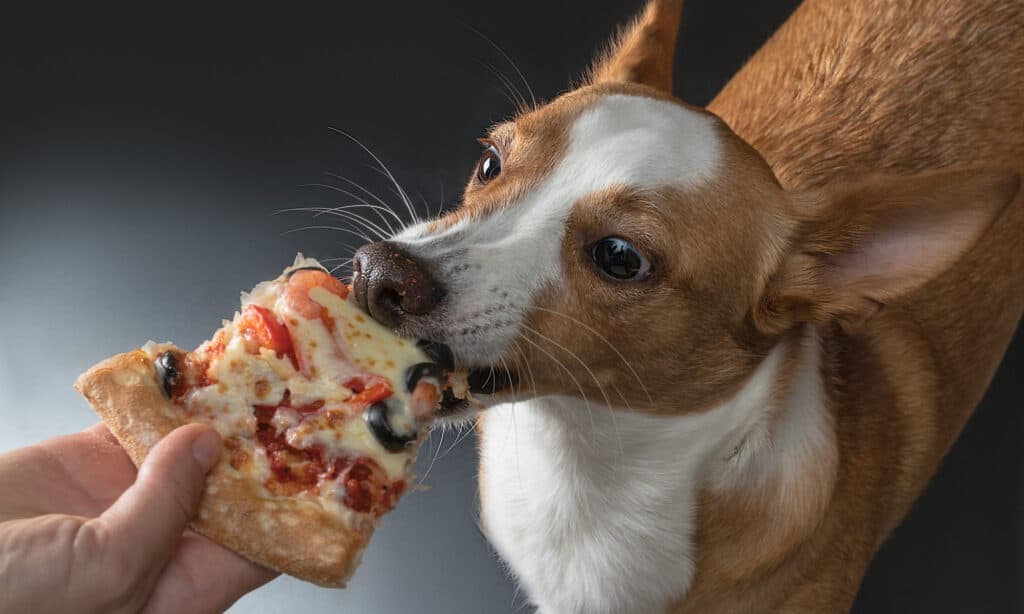
Safe Dog-Friendly Alternative to Pizza Rolls:
If you’re looking for a safe and healthy alternative to pizza rolls for your furry friend, there are several dog-friendly snacks and treats that you can try. Here are a few options to consider:
- Homemade Dog Treats: There are many simple and easy-to-make dog treat recipes that you can try at home. DIY treats = high-quality, dog-friendly ingredients and customized recipe to suit your pup’s nutritional needs and taste buds.
- Vegetables: Carrots, sweet potatoes, and green beans are safe and healthy low-calorie snacks for dogs. You can try baking or steaming the vegetables to make them more appealing to your dog.
- Fruits: Some fruits such as apples, bananas, and blueberries can be a tasty and nutritious treat for dogs in moderation. However, it’s important to remove any seeds or pits that could be harmful to your dog’s health.
- Dental Chews: Dental chews promote good oral hygiene and clean teeth in dogs while providing a tasty snack. Be sure to choose dental chews that are appropriate for your dog’s size and chewing habits.
- Lean Meat: Grilled chicken or turkey is a healthy protein-rich snack for dogs in moderation. However, it’s important to avoid processed meats and to remove any bones that could be a choking hazard.
Remember that while it’s important to provide your dog with healthy and nutritious snacks, treats should always be given in moderation and as part of a balanced diet. If you’re ever unsure about whether a particular food is safe for your dog to eat, it’s always best to consult with your veterinarian.
Healthy Store-Bought Options:
In conclusion, while pizza rolls may be a tempting snack for both humans and dogs alike, it’s important to keep in mind that they may not be the best choice for our furry friends. With their high fat and calorie content, as well as potential harmful ingredients such as garlic and onion powder, pizza rolls can lead to health issues such as obesity, digestive upset, and anemia in dogs.
Fortunately, there are many safe and healthy alternatives that you can try, such as homemade dog treats, vegetables, fruits, dental chews, and lean meats. By choosing dog-friendly snacks and treats, you can ensure that your furry friend is getting the nutrients they need without risking their health.
Remember, if your dog ever accidentally consumes a large amount of pizza rolls or is exhibiting signs of gastrointestinal distress, it’s always best to monitor them closely and consult with your veterinarian if you’re unsure about their condition. With proper care and attention, you can help ensure that your dog stays happy and healthy for years to come.
~Lindsie

